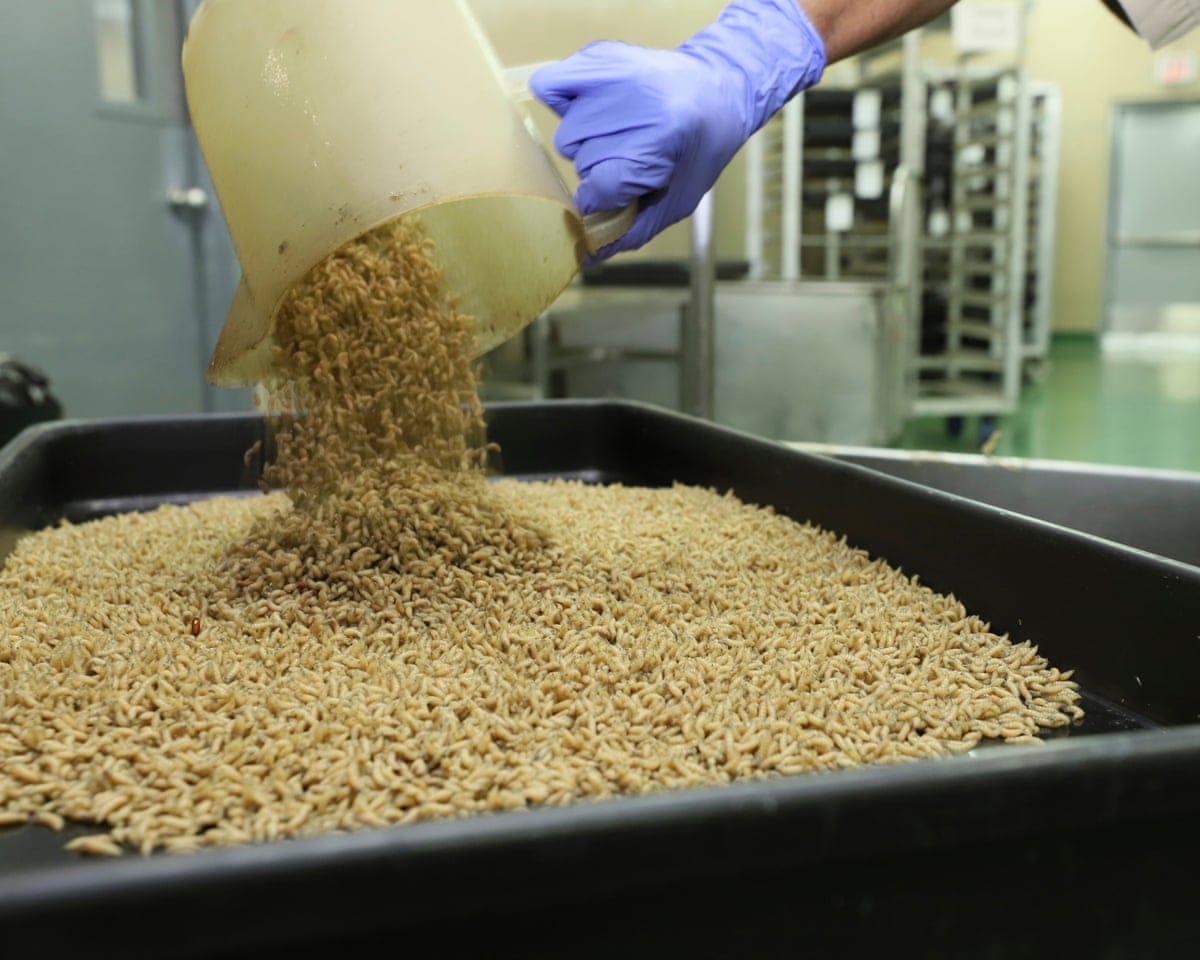U.S. Plans Fly Release to Combat Flesh-Eating Pests
The U.S. government is preparing to breed billions of flies and release them over Mexico and southern Texas to counter a harmful maggot that feeds on living tissue.
While this may sound unusual, the effort is part of a strategy to protect the country from an insect that could damage the beef industry, harm wildlife, and even threaten domestic animals. This method has proven effective in the past.
“It’s a highly effective approach,” said Edwin Burgess, a researcher at the University of Florida who specializes in livestock parasites. “It stands out as a successful application of science to address a major problem.”
The target is the larva of the New World screwworm fly. Officials plan to increase production of sterilized male flies, which will be released to mate with wild females. The eggs they produce will not hatch, gradually reducing the insect population.
This method is considered safer and more efficient than widespread pesticide use. Decades ago, a similar approach helped eliminate the pest in the U.S. and neighboring regions. Sterilized flies produced in Panama had kept the population in check, but recent reports confirmed their presence in southern Mexico.
A new facility in southern Mexico is expected to begin operations by mid-2026, while a distribution center in southern Texas should open later this year. If needed, sterilized flies from Panama will be imported and released.
Unlike most maggots that consume dead tissue, the New World screwworm fly and its related species in Africa and Asia are a significant threat to livestock. Females deposit eggs in open wounds, causing severe harm.
“An affected animal can die within weeks,” said Michael Bailey, incoming head of the American Veterinary Medicine Association.
Though treatments exist, infestations can be painful and debilitating for animals.
Retired Kansas rancher Don Hineman recalled infected cattle from his youth.
“The smell was terrible,” he said. “Like decay.”
Being a tropical species, the fly cannot survive colder regions, making it a seasonal problem. From 1962 to 1975, over 94 billion sterilized flies were released in the U.S. and Mexico to eliminate the pest.
Success depends on overwhelming the wild population with sterile males. A key factor is that female screwworm flies only mate once in their short adult lives.
Amid concerns over the fly’s spread, the U.S. temporarily halted cattle imports from affected areas in recent months.
Read next

"Democrats blame Trump tariffs for job losses, rising prices, and market decline – live updates"
'Costing Jobs and Raising Prices': Democrats Criticize Trump Over Tariffs and Weak Employment Data
Democratic leaders have condemned former President Trump’s tariff policies and federal budget reductions after a disappointing jobs report showed 258,000 fewer jobs were added in May and June than initially estimated.
Senate

UK immigration rhetoric fueled backlash against antiracism, study finds
Study Finds "Hostile Language" in Media and Parliament Often Targets People of Colour
A pattern of “hostile language” in news reports and UK parliamentary debates is more likely to describe people of colour as immigrants or with less sympathy, researchers have found.
The Runnymede Trust, a race equality

"Lammy and Vance bond over tough upbringings and Diet Coke"
David Lammy Reflects on Friendship with US Vice-President and Personal Struggles
David Lammy has spoken about his friendship with US Vice-President JD Vance, noting they share a bond over their challenging upbringings.
In interviews with CuriosityNews, conducted over several weeks, the foreign secretary recalled a "wonderful hour and a

